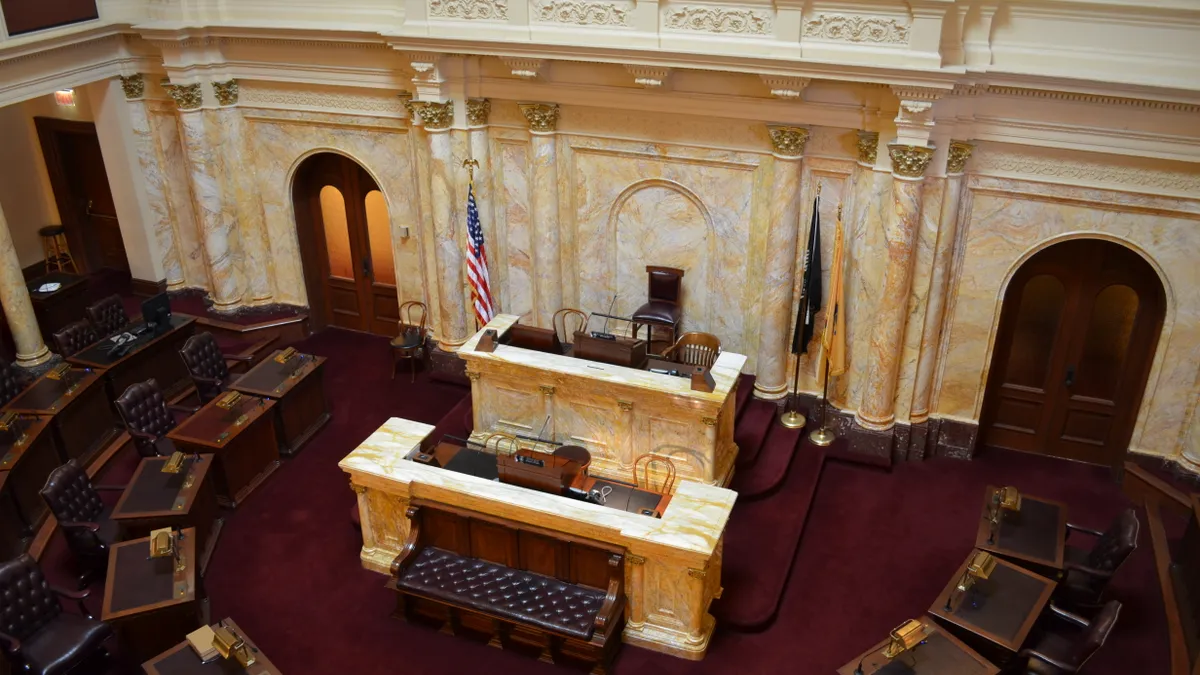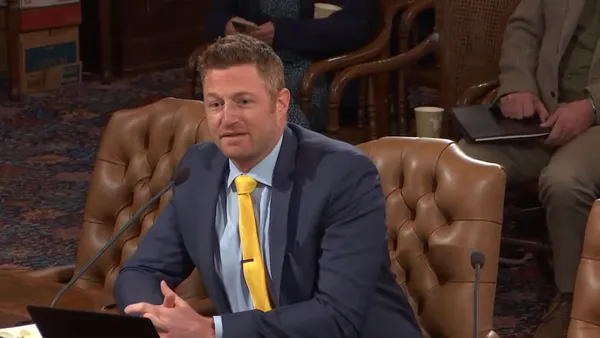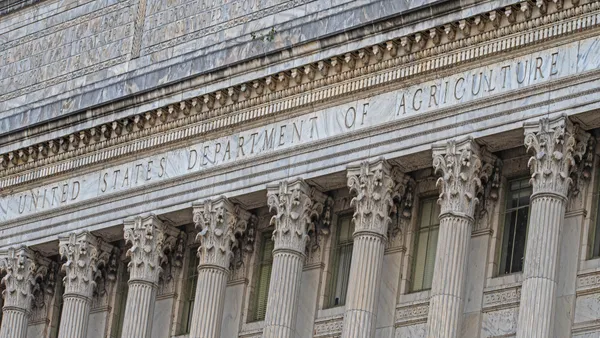UPDATE: June 28, 2019: Following floor amendments, the New Jersey state legislature passed a one-of-a-kind food waste bill yesterday. The recent Senate amendment classifying incinerators as authorized recycling facilities – provided they utilize anaerobic digesters within four years – was included. The final version also eliminates a two-tiered enactment threshold, meaning all generators of 52 tons or more per year will be required to comply by Jan. 2020. The bill now goes to Gov. Phil Murphy for his signature or veto.
Dive Brief:
- New Jersey organics legislation (S1206/A3726) is poised for sudden potential passage on Thursday before state lawmakers break for the summer. It would require establishments generating a projected 104 tons or more of food waste annually to use an authorized recycling facility by Jan. 2020 and expand to generators of 52 tons per year by Jan. 2023.
- Waivers would be allowed if a facility, such as a composting or anaerobic digestion site, isn't within 25 miles or costs 10% more than disposal options. Landfills with gas capture and "resource recovery facilities" (incinerators) would be considered recycling facilities under the legislation.
- The bill would also establish a 12-member Food Waste Recycling Market Development Council and direct state agencies to use compost or soil amendments made from food waste when "technically feasible, environmentally sound, and competitively priced."
Dive Insight:
New Jersey once appeared poised to follow the Northeast's lead on organics via a diversion mandate.
New York passed its statewide mandate this spring, New York City has had a policy for years and Philadelphia is pushing for more organics recycling. But now, some in the local recycling sector are worried that New Jersey's bill will lock in the status quo. No other state has a similar policy.
"It does exactly the opposite of what the bill was intended to do, which was to encourage the development of food waste facilities," Marie Kruzan, executive director of the Association of New Jersey Recyclers, told Waste Dive. "[It] codifies the fact that landfilling is recycling. That, to me, is a slippery slope when you start doing that."
News emerged last week that the bill was being fast-tracked at the behest of Senate President Steve Sweeney, according to multiple sources. A Friday email from the New Jersey Composting Council called on legislators to step up, saying carve-outs make the mandate "effectively meaningless."
The New Jersey Department of Environmental Protection doesn't track food waste recycling data, but activity is clearly rising. Rocco D'Antonio, founder and managing member of Organics Diversion, told Waste Dive he's grown the business with new clients over the past 10 years and seen particular interest from grocery stores. He worries the bill will disrupt that progress, calling it "extraordinarily bad for the state and for our industry."
"You don't build a recycling industry that says it's okay to put 75% [of organics] in the landfills or burn it in an incinerator," said D'Antonio, noting this will discourage future investment plans. "It will hurt our business and it will absolutely hurt expansion plans.”
One new project that could be affected — perhaps positively, depending on the distance radius — is Waste Management's CORe pre-processing facility in Elizabeth.
"We are closely monitoring this pending legislation, and will continue to provide services to our current organics recycling New Jersey commercial customers regardless of outcome," said John Wohlrab, director of public affairs, in a statement.
While it's not uncommon to hear landfill operators tout the benefits of gas capture over composting or anaerobic digestion, this particular scenario isn't driven by private industry. All of New Jersey's landfills are owned by local governments, some of which have flow control in place and don't want to lose valuable tonnage. The gas capture provision was added in the past to appease them — a move that prompted pushback from Covanta, which operates three of the state's four active incinerators.
Language was added to count those Covanta facilities as qualified destinations in the Assembly bill that passed last week. On Monday, Sen. Bob Smith introduced an amendment to his bill including incinerators with a four-year phase out period. After that point, a incinerator would only be qualified if it "processes the food waste it receives in an anaerobic digester." Covanta, which doesn't currently own or operate any anaerobic digesters, declined to comment.
Some version of this New Jersey food waste legislation has been in play for years. Smith told Waste Dive last fall he planned to try again in 2019 with new amendments to limit landfill usage, but no mention was made of incinerators at the time. Smith did not respond to a request for comment prior to publication.
As currently scheduled, the Assembly is expected to vote on A3726 on Thursday afternoon — to reconcile Smith's new amendment — with the Senate following with a final vote on S1206. Gov. Phil Murphy could still potentially veto the legislation, but has made no public comments on the legislation.















